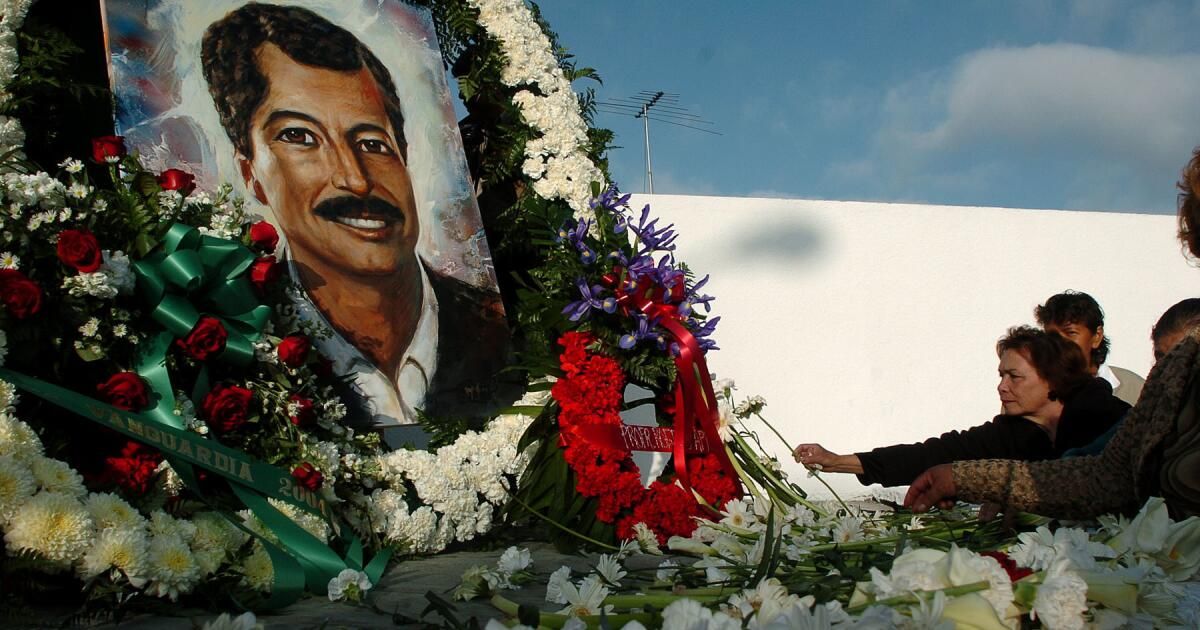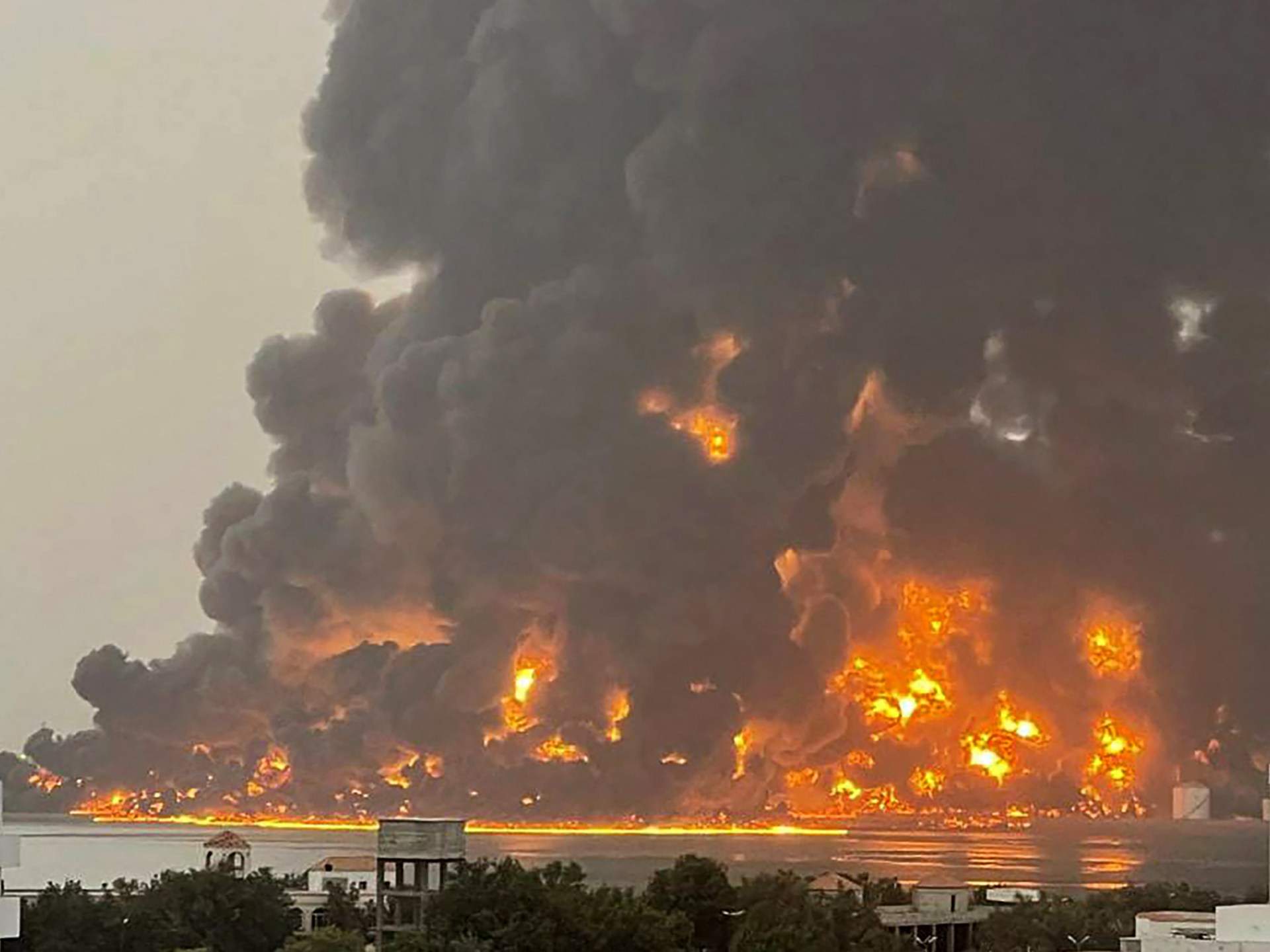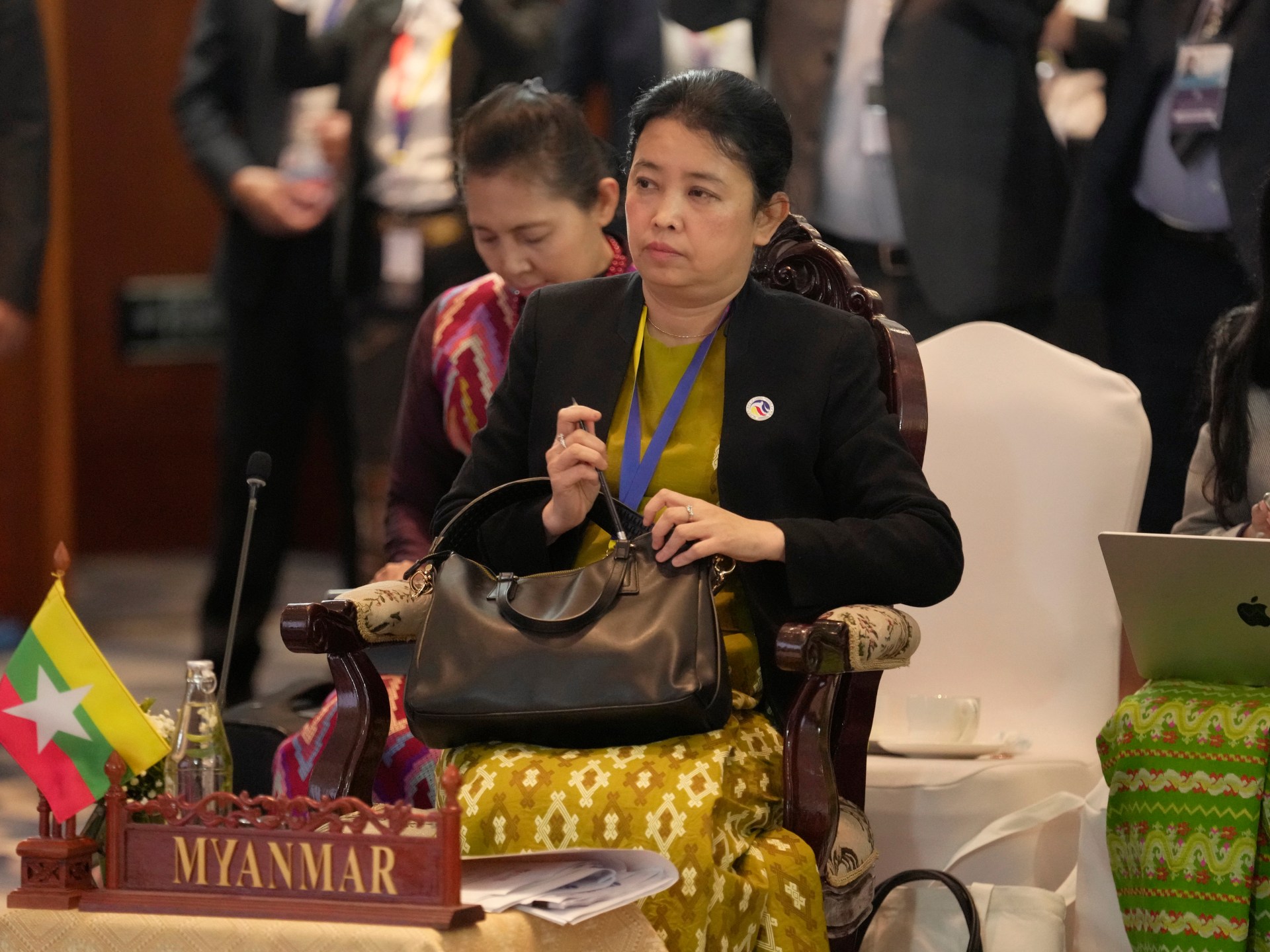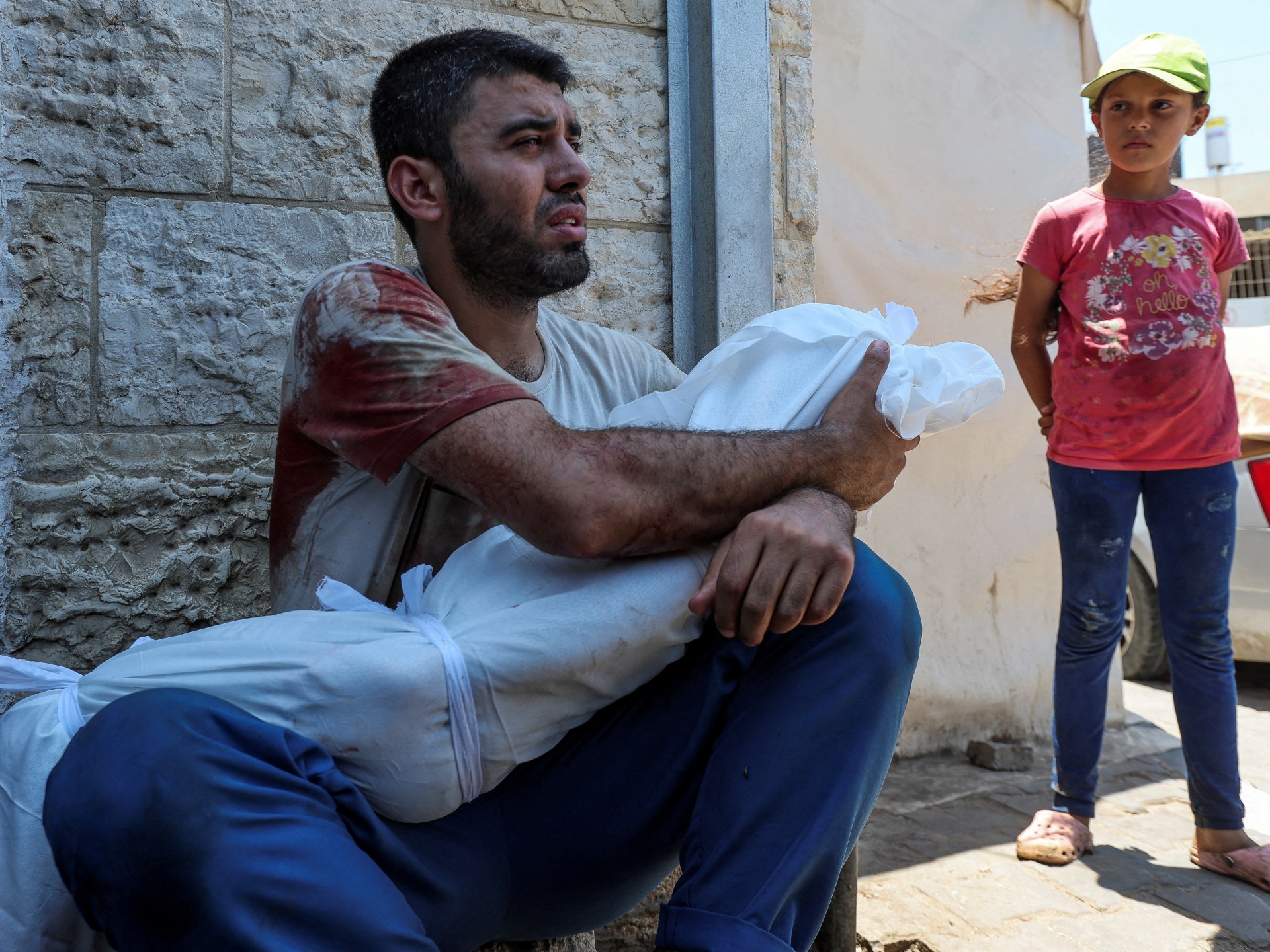Like the assassination of President Kennedy in the United States, the 1994 assassination of Luis Donaldo Colosio – a charismatic presidential candidate who promised to reform Mexico's historically autocratic political culture – has long generated doubts and conspiracy theories.
Many Mexicans have rejected the official conclusion that a lone gunman, Mario Aburto Martínez, an apparently apolitical factory worker, was solely responsible for the shooting death of Colosio during a campaign rally in the border city of Tijuana.
The murder has generated tens of thousands of pages of testimony from hundreds of witnesses, along with books, documentaries, a television miniseries and endless debate that highlights widespread distrust in Mexico's legal system.
As Mexico embarks on another year of national elections (and the 30th anniversary of Colosio's murder approaches), the incendiary case and all its controversial parts have once again been returned to the political debate.
Luis Donaldo Colosio, standing next to a framed portrait of then-Mexican President Carlos Salinas de Gortari, greets journalists in November 1993, a few months before he was shot to death.
(Carlos Taboada/Associated Press)
On Tuesday, Mexican President Andrés Manuel López Obrador rejected a request to pardon Aburto, who has spent nearly 30 years in prison for the crime.
“I can't do it,” López Obrador said of the pardon during his regular morning press conference.
The murder, the president explained, was “a matter of State” that must continue to be investigated.
The pardon petition could have been rejected outright if it had not been for its initiator: Luis Donaldo Colosio Riojas, son and namesake of the murdered candidate. On Monday, Colosio Riojas told reporters that it was time to “turn the page” on the controversial issue.
A pardon, declared Colosio Riojas, “would allow both my family and Mexico to heal… to begin taking a path toward reconciliation.”
Colosio Riojas is a promising legislator whose name carries tremendous weight. He is 38 years old and is mayor of the northern city of Monterrey, a bastion of opposition to López Obrador's party. Colosio Riojas is also currently a candidate for senator for an opposition party.
López Obrador's critics see politics behind his actions. The president's political movement, critics say, could benefit politically from an investigation implicating the former ruling party in Colosio's murder. López Obrador, a leftist, routinely denounces conservative political opponents who previously governed Mexico as members of the “power mafia.”
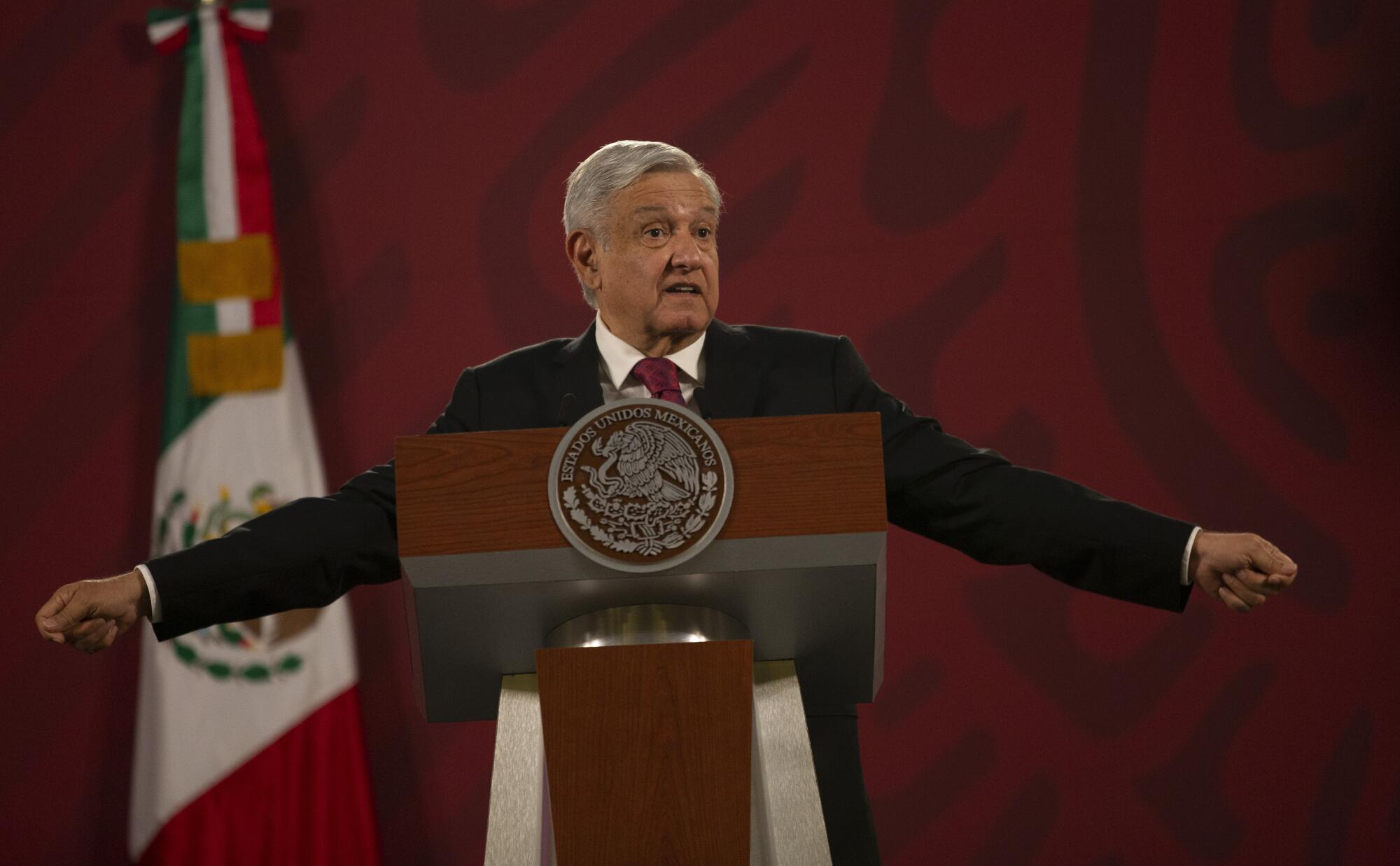
Mexican President Andrés Manuel López Obrador has refused to pardon the convicted murderer of slain presidential candidate Luis Donaldo Colosio.
(Marco Ugarte / Associated Press)
The president scoffed at the idea that there were electoral motivations.
“I have no intention of using such a regrettable situation for political purposes,” López Obrador said.
At the time of his assassination, Colosio, as the standard-bearer of the Institutional Revolutionary Party (known as PRI), which had long dominated Mexico, was a heavy favorite to be elected Mexico's next president. After his death, the PRI named Ernesto Zedillo, who had been Colosio's campaign director, as a substitute candidate. Zedillo, a mediocre technocrat, was elected president.
Colosio's murder has long generated criticism that rejects the official conclusion that Aburto acted alone. The alleged culprits in the murder include elements of the Mexican government hostile to Colosio's reformist agenda and drug cartel leaders concerned about a possible crackdown on his activities.
Several alternative investigations into the case have found that authorities mishandled leads, ignored evidence and generally botched the investigation. Aburto, the convicted murderer, has claimed that he was tortured into confessing.
A widely held hypothesis is that the Aburto serving time is actually a double of the real killer, who was supposedly killed after knocking down Colosio.
The case, wrote columnist Salvador García Soto in the Mexican newspaper El Universal, “was never fully resolved in the collective imagination and, furthermore, was manipulated to hide the truth.”
The question of pardon arose just when the Colosio case has taken a new investigative turn.
Mexico's attorney general has publicly charged that a “second gunman” (a former Mexican government intelligence agent) was involved in the murder.
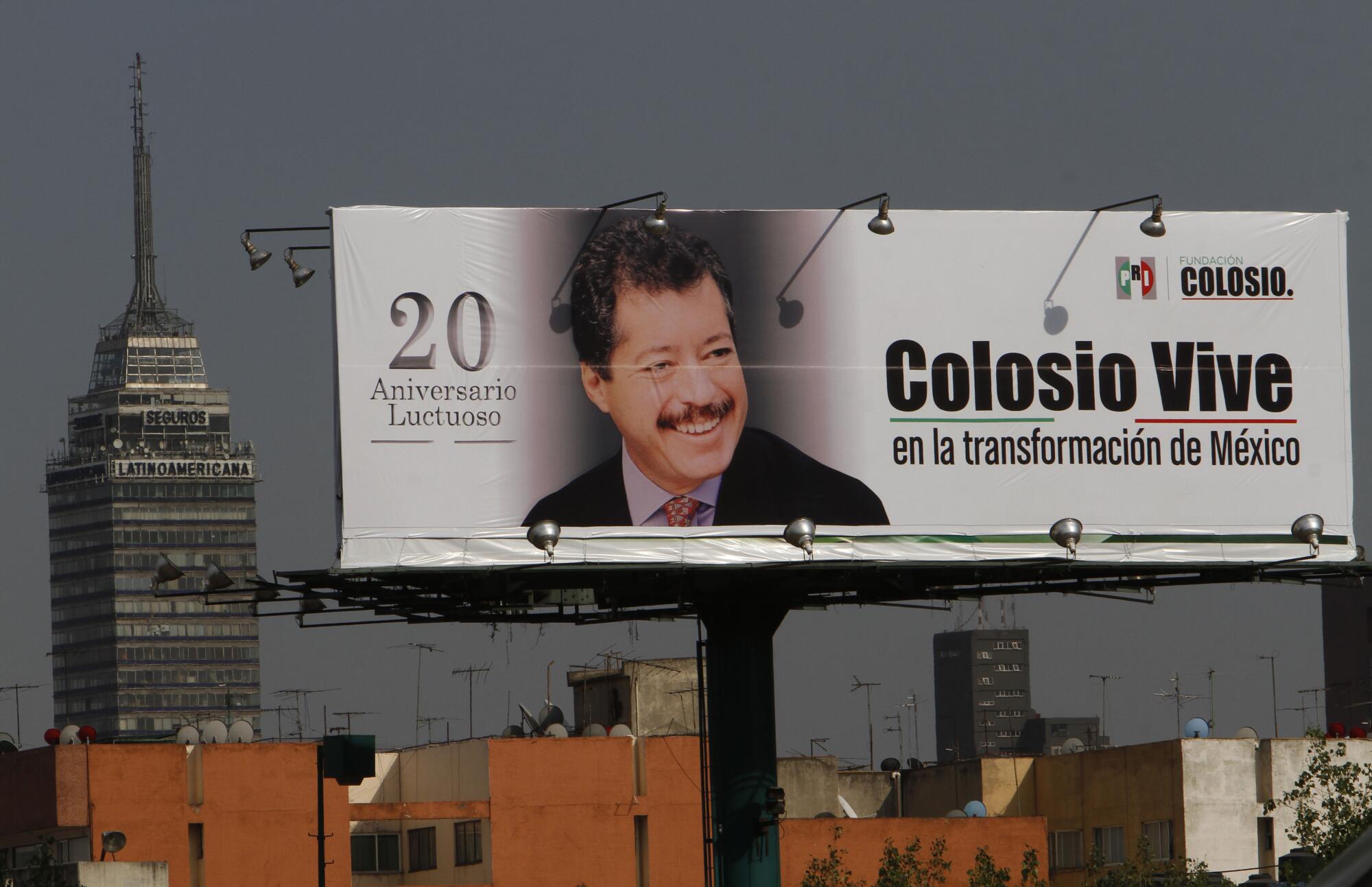
A sign in Mexico City on the 20th anniversary of the assassination of politician Luis Donaldo Colosio in 1994 reads: “Colosio lives in the transformation of Mexico.”
(Marco Ugarte / Associated Press)
For supporters of the Kennedy assassination, the accusation inevitably brings to mind the alleged second shooter on the “grassy knoll” in Dallas' Dealey Plaza on November 22, 1963.
In a news release Monday, the attorney general's office said the second gunman's suspect, identified only as Jorge Antonio “S,” a former government intelligence officer, was present at the scene of the murder in the Lomas Taurinas neighborhood of Tijuana. in 1994 and was smuggled out of the scene. Blood found on his clothing matched Colosio's, the attorney general said.
Additionally, the attorney general accused a federal judge of “criminal cover-up” by blocking his investigation into the second gunman.
On Tuesday, López Obrador said federal prosecutors' allegation of a second gunman and a judicial cover-up should be investigated.
Get breaking news, investigations, analysis and more exclusive journalism from the Los Angeles Times delivered to your inbox.
You may occasionally receive promotional content from the Los Angeles Times.
“It is important that there is no impunity if it is a crime that, according to prosecutors, has some relationship with a State institution,” said the president.
Colosio was shot twice (in the head and abdomen) during the demonstration in a district near the Tijuana airport. The assassination immediately plunged Mexico into a deep political crisis when the government was already dealing with serious economic problems and the Zapatista rebel insurrection in the south.
The continued opacity of the Colosio case extends to the fate of Aburto, now 53 years old. He was initially sentenced to 45 years in prison under federal law. But a court ruling last year established that his sentence should have been 30 years, under state law in Baja California, where the murder occurred. If the 30-year sentence is applied, Aburto would be released from prison in March.
However, Mexico's federal attorney general is appealing and requesting the reinstatement of the original 45-year prison sentence.
No matter what happens on the legal front, Mexico's most sensational murder case in decades seems sure to continue to resonate in an election year in which voters must elect a new president. And, as was the case with the Kennedy assassination north of the border, many in Mexico will likely remain unconvinced that justice was served in the assassination of Luis Donaldo Colosio.
Special correspondent Cecilia Sánchez Vidal contributed to this report.

